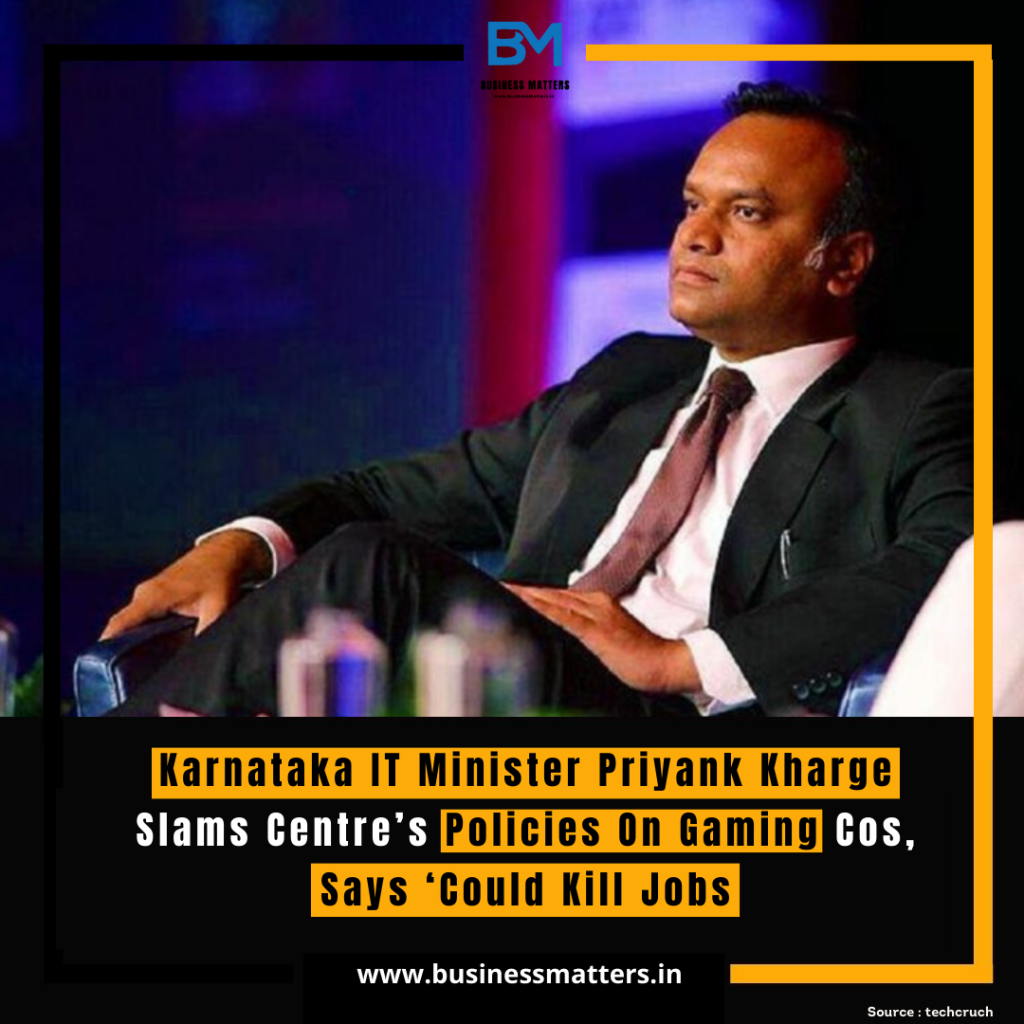Karnataka’s IT Minister, Priyank Kharge, has come forward to criticize the central government’s policies on gaming companies, expressing concern over their potential negative impact on employment. In a bold statement, Kharge argued that the current policies, if implemented without careful consideration, could result in job losses within the gaming sector.
Kharge’s remarks highlight the growing tension between state and central governments regarding the regulation of the gaming industry. The central government has been exploring the possibility of regulating online gaming and gambling activities, citing concerns about addiction, fraud, and the need for consumer protection.
The Karnataka IT Minister’s critique centers on the potential consequences of stringent regulations, particularly the impact on employment within the gaming sector. Kharge argues that a heavy-handed approach could stifle the growth of gaming companies, leading to downsizing and job losses, especially in a state like Karnataka, which has become a significant hub for the information technology and gaming industries.
The gaming industry in India has experienced exponential growth in recent years, fueled by increasing smartphone penetration, internet accessibility, and a youthful demographic eager to explore digital entertainment options. Karnataka, with its thriving tech ecosystem, has been a key contributor to this growth, hosting numerous gaming startups and established companies.
Kharge’s concerns echo those of industry experts who fear that stringent regulations could hamper the industry’s ability to innovate and expand. The gaming sector, encompassing mobile games, esports, and online platforms, has become a vital part of the digital economy, contributing not only to entertainment but also to job creation and economic growth.
The Minister’s criticism also brings attention to the need for a balanced regulatory framework that addresses concerns such as addiction and consumer protection without stifling the industry’s potential. Striking this balance is crucial to maintaining a conducive environment for the gaming sector’s growth while addressing legitimate concerns raised by regulatory authorities.
Moreover, Kharge’s statements underscore the importance of collaboration and dialogue between state and central governments to formulate policies that consider the unique characteristics and potential of the gaming industry. A nuanced approach that involves stakeholders from the gaming sector, policymakers, and experts is essential to develop regulations that foster a thriving industry while addressing societal concerns.
It’s worth noting that the gaming industry has the potential to create a diverse range of employment opportunities, from game development and design to esports management and streaming. Overregulation, as cautioned by Kharge, could impede the industry’s ability to tap into its full potential and contribute significantly to job creation and skill development.
As the central government deliberates on gaming regulations, it becomes imperative to involve state governments, industry representatives, and experts in crafting a comprehensive policy framework. Balancing the interests of all stakeholders will not only address concerns related to the gaming sector but also ensure that India’s digital economy continues to flourish.
In conclusion, Priyank Kharge’s critique of the central government’s policies on gaming companies reflects the broader challenges of finding a balanced regulatory approach. While acknowledging the need for oversight, Kharge emphasizes the potential consequences on jobs and economic growth, urging policymakers to consider the industry’s nuances. The evolving dynamics between state and central governments, coupled with input from industry stakeholders, will play a pivotal role in shaping the future of gaming regulations in India.


